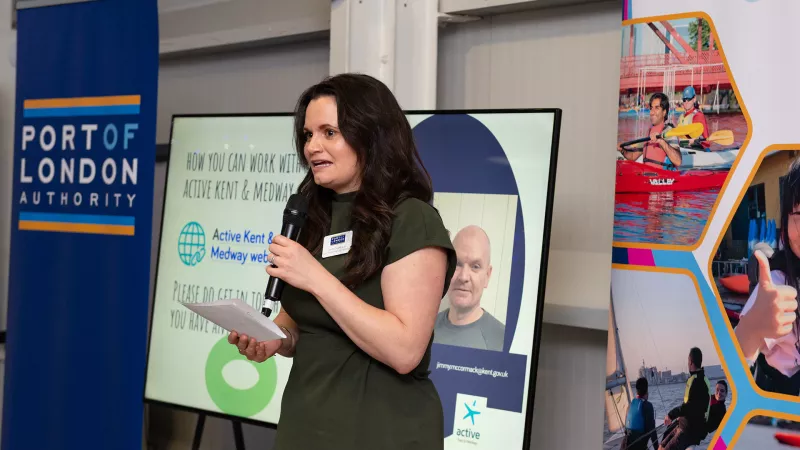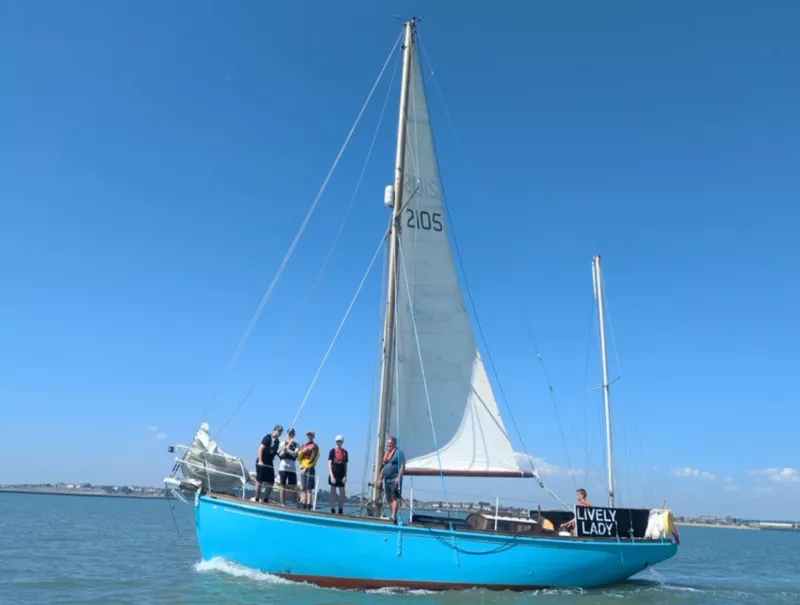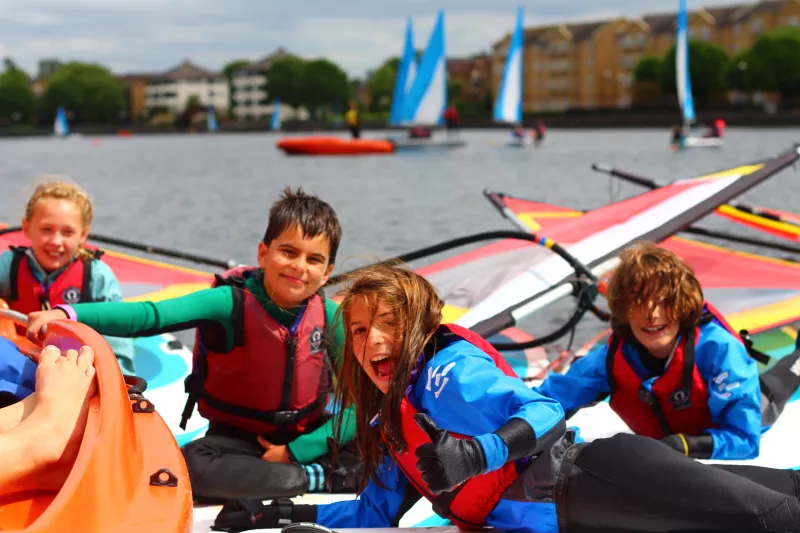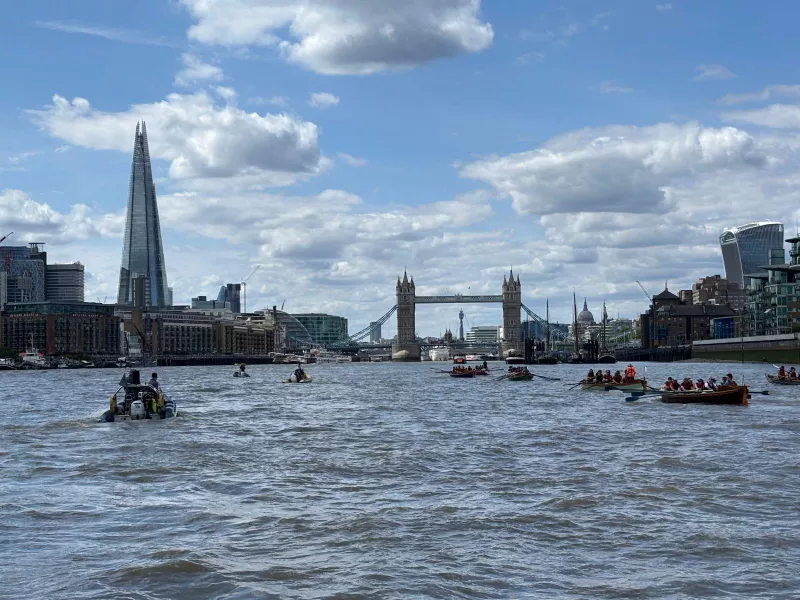Kent-based sailing club proving daily that disability should never be a barrier to enter sports
"It’s about breaking down barriers"
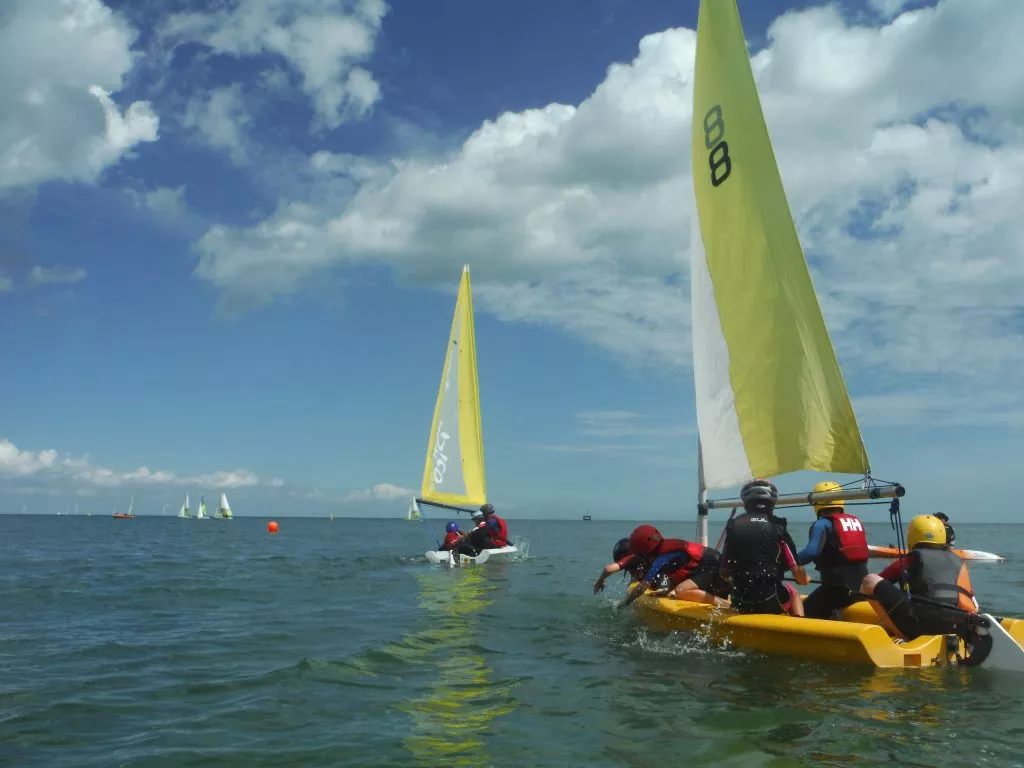
Volunteer-led Herne Bay Sailing Club are on a mission to help people from all different backgrounds experience the world of sailing.
Now with Active Thames funding, they’re breaking down the barriers to sailing for the deaf and hearing-impaired, and partially sighted communities.
By Emma Blackmore
“My daughter was apprehensive at first,” a mother reveals to senior sailing instructor Nathan Hudson about her daughter’s first time sailing. “By the end of the session she came up to me and said, ‘When can we come again?’” The mother and instructor are standing outside Herne Bay Sailing Club looking out over the shingle beach. While the north coast of Kent is well-known as a popular spot for open water swimming and watersports, this particular club is proving that disability and social deprivation are not, and should never be, a barrier to enter sailing.
Established in 1921, Herne Bay Sailing Club is a volunteer-led family-friendly club. Sailing every Saturday, the club run sessions from May to October and thanks to grant funding from Active Thames, the club have been able to involve individuals who would not normally have the opportunity to experience sailing.
“It’s about breaking down barriers,” senior sailing instructor Nathan explains. His highlight of the season has been holding an open day for twenty deaf and hearing-impaired children and their families to discover sailing and get out on the water. The club were able to show that dinghy sailing is available and very much possible to adults or children who are deaf or hearing-impaired.
An Active Thames grant of £5,000 has helped with coaching development and purchasing boats in order to make activities such as the open day possible. Active Thames is an initiative led by Port of London Authority that aims to increase diversity and inclusivity within watersports.
“We’ve been able to give additional coaching to our volunteer instructors including deaf awareness training and learning basic sign language,” Nathan says. “This gives our instructors the confidence to take the children and adults out on the water and help the instructors adapt their coaching style.”
Like many sport clubs, Nathan admits that since the Covid-19 lockdowns recruiting and finding new volunteer coaches has been increasingly difficult. “We have a group of volunteers who have been here for many years, but we do constantly have to recruit coaches and find new members. We’ve been able to invest in equipment and boats which means we can bring more people into the club and provide a greater experience. The lifeblood of the club is new membership, really.
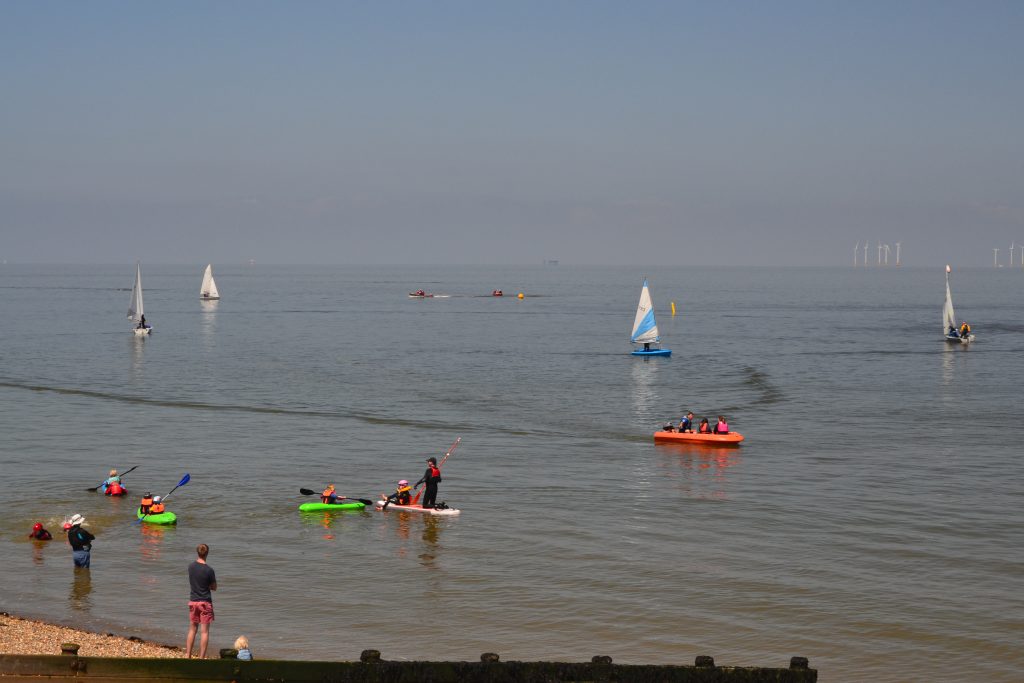
“We’ve been able to give additional coaching to our volunteer instructors including deaf awareness training and learning basic sign language." says senior sailing instructor, Nathan Hudson.
“One of the challenges within sailing is diversity and we always aim to get different people involved,” Nathan explains. “I’ve sailed my whole life but the reason I got involved in coaching 20 years ago was because my son is profoundly deaf, and I wanted him to experience this sport within a safe environment. At the time, I felt that the only way to do that was to become an instructor myself.
“Our approach to sailing has always been to reduce the barriers to entry,” Nathan says as sailing is often associated with a certain privileged image. “Over the years, we’ve had a lot of support from Royal Yacht Association and various other bodies such as Sport England and of course Active Thames, which means we now have a wide range of boats.” The club own six single-handed dinghies and four smaller ones. “We now have boats that help both children and adults progress their abilities and that are suitable for beginners and experts, as well as people with disabilities.”
The club have dedicated the entire season to involving participants from a wide range of socio-economic backgrounds, including hosting a free children’s open sailing activity day. Attended by 40 children from low socio-economic backgrounds, many of the children and their families were able to experience the Thames Estuary for the first time through learning how to sail, riding the powerboat and trying kayaking and stand-up paddleboarding.
The club also supported a Canterbury scout group to develop their nautical skills onshore and on the water, something some of the children had never had the opportunity to do before.
What’s clear is that this club has had an action-packed season, so what’s been Nathan’s biggest achievement this year? “Being able to teach children and adults who are deaf and hearing-impaired or partially sighted,” he says. “Often, it’s so hard to involve those communities because people are so nervous about participating in an activity like sailing. We’ve been able to give communities the confidence to go out on the water and let them sail independently while being there for them.” Nathan explains that, because of the additional boats purchased, some members who are partially sighted are able to rig the boat with more independence.
“It’s like the little girl who was apprehensive about being on the water. By the end, she was so enthusiastic about sailing. For me, being able to pass over my sailing knowledge- and I’ve sailed for the best part of 40 odd years now- makes everything so worthwhile.”


